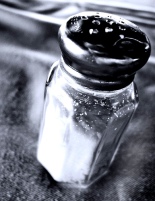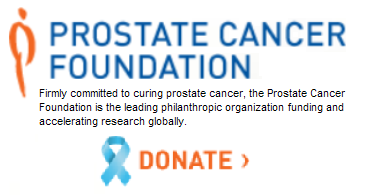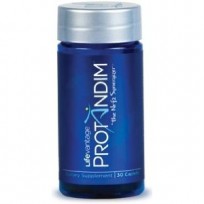Salt; is Good for You?
I love the show Mythbusters and BullShit as they both change our paradigm and stretch our minds showing us that just because we believe something, doesn’t make it so. So often we tend to learn much of what we know and make into our belief system, from our peers and our parents who pass down, from generation to generation, often bad or at least misunderstood information. You may have heard the story about cutting both sides of the ham?
One day a young girl watched her mother prepare a ham for Thanksgiving dinner. “Mom, why did you cut off both ends of the ham?” the daughter asked. “Because my mother always did,” said the mother. “But why?” “I don’t know-why don’t you call Granny and find out why.” So the daughter called Granny and asked her. “Granny, when you prepared your hams for baking, why did you always cut off both ends?” “My mother always did it,” said Granny. “But why?” “I don’t know-why don’t you call your Great-grandmother and ask her?” So the daughter preceded to telephone Great-grandmother to inquire why traditionally her family always cut off both ends of a ham before cooking it. “Great-grandma, when you prepared your ham for baking, you always cut off both ends-why?” “Well,” Great-grandma said, “the pan was too small.”These stories and shows are always great because they point out that the information we use to guide our daily lives and the beliefs we have; always seems to make sense, but may not, based on further research and common sense.
It is this writers hope that if you are basing how you live your life, on your beliefs, that you have checked them out and that they at least pass some kind of logic test.
Of course, both “common logic” and “common sense” may be common, but not logical or sensible; and these shows prove this week after week.
The Point?
Salt studies are now showing that the salt scare your parents and doctors have leveled against you, for years, may have little truth or basis in science.
As reported by CNN as long ago as 1998 “For too long we’ve ignored the fact that blood pressure regulation is more closely tied to calcium, potassium and magnesium than it ever was to sodium,” says Dr. David McCarron of Oregon Health Sciences University.
But don’t start pouring on the salt just yet. Many people with high blood pressure still need to cut back on salt. “We don’t want to abandon the salt message, but we want to expand upon it and say that there are other things that are important, too,” says Chris Rosenbloom of the American Dietetic Association.
Recipe for low blood pressure
And the evidence is mounting. A recent article in the journal Science confirms: A salt-restricted diet rich in fruits, vegetables and fat-free or low-fat dairy products provides the greatest reduction in blood pressure. “The effect of low-fat dairy products and fruits and vegetables appears to be someplace between 10 and 20 times as effective as restriction of salt,” McCarron says. “The guidelines are clear — three to four servings of low-fat diary products, five to eight servings of fruits and vegetables a day,” he says” Read More: http://www.cnn.com/HEALTH/9808/13/salt.blood.pressure
Jenny Thompson in her HSI e-Alert wrote the following: “Lowering sodium intake may actually increase risk of heart attack and death. And here’s the proof: In three different trials that tested low-sodium diets on patients with kidney disease and heart failure, results linked the special diets to higher risk of hospitalizations, cardiovascular events, and death.
Yeah–THAT wasn’t supposed to happen!
In a recent Journal of the American Medical Association, Dr. Michael Alderman (a past president of the International Society of Hypertension) called for large-scale clinical trials that will hopefully produce definitive data on what outcomes can be expected in following a reduced-sodium diet. And why would we need those trials?
According to Dr. David McCarron–a nutritionist and University of California professor–there’s currently no reliable evidence that backs up the accepted recommendation to reduce sodium intake for heart health. Dr. McCarron says the recommendation is based only on opinion and the demonization of salt by health authorities, such as the CDC. And now I’ll tell you something you’ll have no trouble believing. One of the key points in the new USDA dietary recommendations: Significantly reduce sodium intake.
Real life mythbuster
Writing about the new USDA recommendations in Canada’s Financial Post, Dr. McCarron has more salt myths to bust. Last year he led a study that measured daily salt intake in more than 19,000 subjects from about 30 countries. The three surprising conclusions:
- Americans consume no more salt than people in other countries.
- Salt consumption in the U.S. has NOT increased over the past 25 years.
- No matter how salty your food, your body naturally regulates your intake, so you wind up with a consistent overall intake.
This is why deliberately forcing down your salt intake is a bad plan–not healthy at all. Your body takes what it needs. And it does need sodium.
Several years ago, German research showed that as many as 1 in 10 seniors suffer from hyponatraemia (low blood levels of sodium). Hyponatraemia usually goes undiagnosed because symptoms are similar to conditions we associate with aging: fatigue, confusion, poor balance, and incontinence.
In advanced hyponatraemia, patients have hallucinations and may even lapse into a coma. The German study reported that a large majority of the elderly subjects said they avoided salt based on the popular misconception that salt intake causes high blood pressure. Gee, USDA, I wonder where they’re getting that misguided information.” Read More http://hsibaltimore.com/2010/06/30/sodium Back to the Top
























 Watch this Video on A Better Way To Fight Harmful Free Radicals
Watch this Video on A Better Way To Fight Harmful Free Radicals
